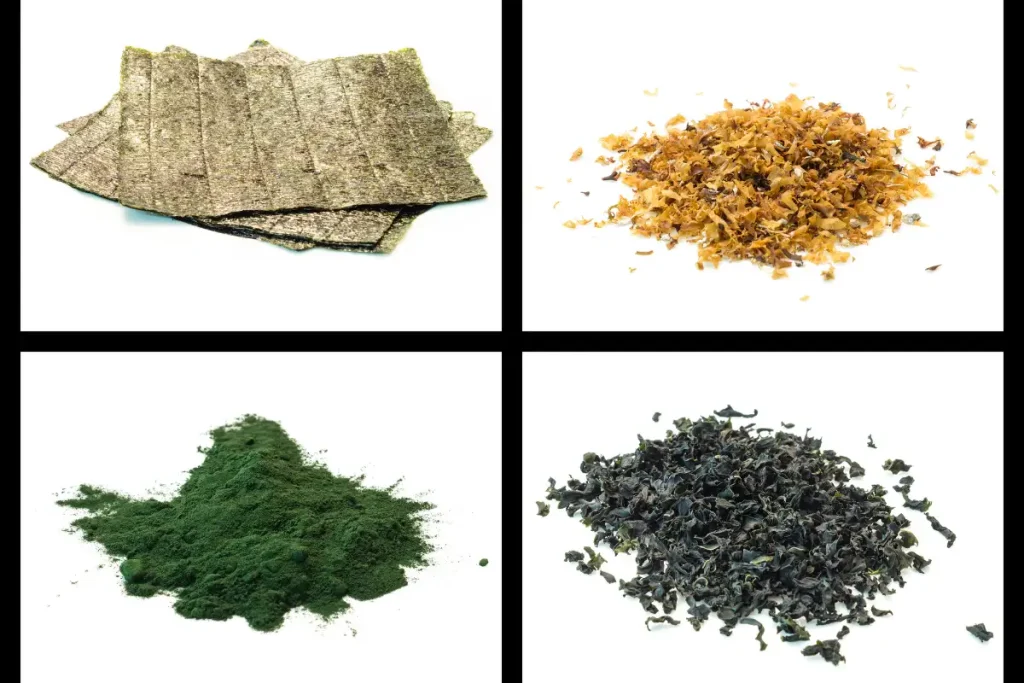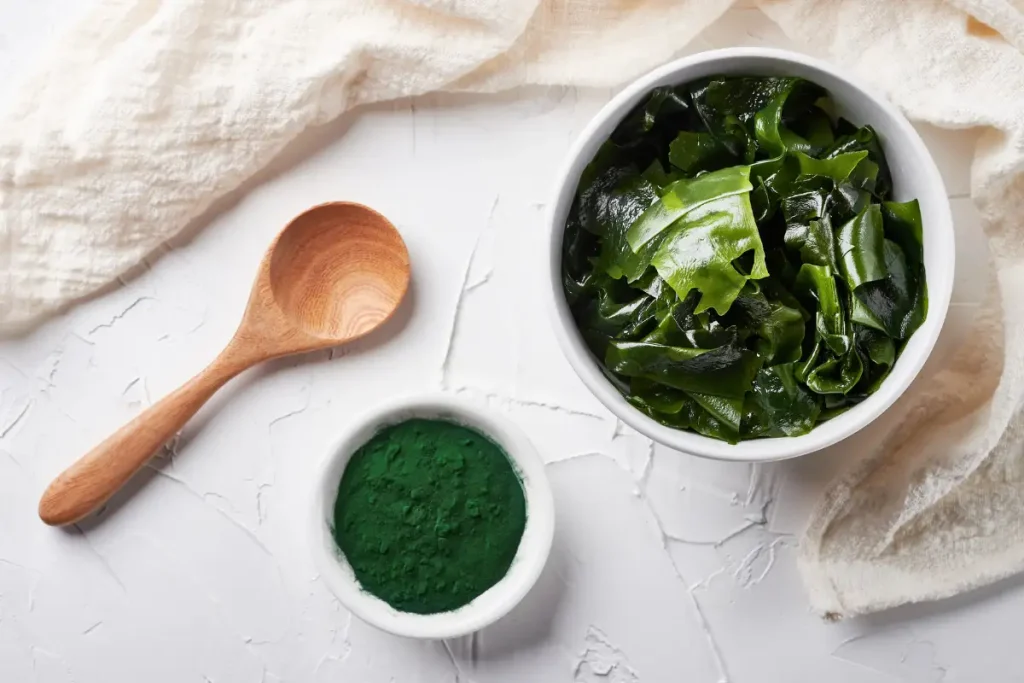Yes, chickens can eat fresh seaweed as it provides them with nutrients. Seaweed is a marine algae that can be classified as green, brown, or red and can be used in poultry diets.
Introducing fresh seaweed into a chicken’s diet can be a nutritious addition. Seaweed is a marine algae that is classified as green, brown, or red and is rich in vitamins, minerals, and antioxidants. Chickens can benefit from the nutrients found in seaweed, which can support their immune system, improve the quality of their meat and eggs, and provide overall health benefits.
However, it is important to ensure that the seaweed is free from contaminants and pesticides before feeding it to chickens. With proper precautions taken, fresh seaweed can be a beneficial and natural dietary supplement for chickens.
Table of Contents
Understanding Seaweed
Chickens can eat fresh seaweed, which is a type of marine algae. Seaweeds provide nutrients that can be beneficial for their diet. However, it is important to ensure that the seaweed is free from contaminants before feeding it to the chickens.
Classification of Seaweed
Seaweeds, also known as marine algae, are categorized into three main groups: green, brown, and red algae. Each category consists of various species that thrive in different marine environments. Green algae, including Chlorella, Chlamydomonas, Enteromorpha, Spirogyra, and Ulva, are commonly found along coastlines and in shallow waters. Brown algae, such as kelp and bladderwrack, tend to grow in colder temperatures and can be found in rocky coastal areas. Red algae, like dulse and nori, are often found in intertidal zones and have a characteristic reddish color.

Nutritional Value of Seaweed
Seaweed is not only an excellent source of nutrients for marine life but also for chickens. As a highly nutritious food, seaweed offers a variety of essential vitamins, minerals, and amino acids that contribute to the overall health and well-being of chickens. Here are some key nutritional components found in different types of seaweed:
Please note that the specific nutritional profile may vary depending on the type of seaweed. It’s essential to research and understand the specific benefits and potential drawbacks of each type before introducing it to your chickens’ diet.
In conclusion, seaweed is not only a tasty addition to your chickens’ meals but also provides a wide array of nutritional benefits. Its classification into green, brown, and red algae showcases the diversity of seaweed available for consumption. However, it’s crucial to ensure that the seaweed is fresh, free from contaminants, and given in appropriate quantities to avoid any adverse effects. By understanding the classification and nutritional value of seaweed, you can make informed decisions when considering adding it to your chickens’ diet.
Can Chickens Eat Fresh Seaweed?
When it comes to the question of whether chickens can eat fresh seaweed, the answer is a resounding yes! Seaweed is not only safe for chickens to consume, but it also provides several benefits to their health and well-being. However, before feeding your feathered friends this oceanic treat, it’s essential to understand the safety and benefits of seaweed for chickens.

Safety Of Seaweed For Chickens
Chickens can safely consume fresh seaweed without any adverse effects. Seaweed is a natural food source for many coastal bird species, making it a suitable addition to a chicken’s diet. However, it’s crucial to ensure that the seaweed is free from contaminants and pesticides that could be harmful to the birds.
Benefits Of Seaweed For Chickens
Seaweed offers several benefits to chickens, making it a valuable addition to their diet. Here are some of the key advantages:
Feeding fresh seaweed to your chickens can be a great way to provide them with additional nutrients while diversifying their diet. However, it’s important to introduce seaweed gradually to prevent any digestive upset. Start by offering small amounts and monitor your chickens’ response before increasing the quantity.
How To Feed Seaweed To Chickens
Chickens can safely eat fresh seaweed as part of their diet. Seaweeds, such as green, brown, or red algae, provide essential nutrients and can improve the overall health of chickens.
Preparing Fresh Seaweed For Chickens
When it comes to feeding seaweed to chickens, it’s important to properly prepare the fresh seaweed before giving it to your flock. The first step is to thoroughly wash the seaweed to remove any debris, salt, or other impurities. This ensures that the seaweed is clean and safe for consumption.
To prepare fresh seaweed for chickens, follow these simple steps:
- Start by rinsing the seaweed under cold water to remove any sand or dirt.
- Next, soak the seaweed in a sink or large bowl filled with fresh water for about 15-20 minutes. This helps to further remove any remaining impurities.
- After soaking, drain the seaweed and rinse it once again under cold water.
- Finally, chop the seaweed into smaller, bite-sized pieces. This makes it easier for chickens to eat and digest.
By taking the time to properly prepare the fresh seaweed, you can ensure that your chickens are getting a clean and nutritious treat.

Proper Quantity And Frequency Of Feeding
When feeding seaweed to chickens, it’s essential to find the right balance. While seaweed can be a valuable addition to their diet, it should be given in moderation to avoid any potential digestive issues.
As a general guideline, it is recommended to feed fresh seaweed to chickens no more than once or twice a week. This ensures that they receive the nutritional benefits without overwhelming their system.
When it comes to the quantity, start with small amounts and observe how your chickens respond. A handful of chopped seaweed per flock should be sufficient. Monitor their behavior and digestion to determine if adjustments need to be made.
Remember, variety is key when it comes to a chicken’s diet. Seaweed should be offered as a supplement rather than a staple food. Ensure that they have access to a balanced diet that includes a mix of grains, vegetables, fruits, and protein sources.
In conclusion, by following these recommendations, you can safely introduce fresh seaweed to your chicken’s diet. Prepare it properly and feed it in moderation to ensure that your feathered friends enjoy the benefits of this natural and nutrient-rich treat.
Ensuring Safety And Quality
When it comes to feeding chickens fresh seaweed, it is crucial to prioritize their safety and ensure the quality of the seaweed. By following a few guidelines, you can confidently incorporate seaweed into your chickens’ diet and provide them with a nutritious and diverse food source.
Choosing The Right Seaweed
When selecting seaweed for your chickens, keep in mind that not all types are suitable for consumption. It is essential to choose edible seaweed varieties that are safe for chickens. Opt for seaweed that is specifically labeled as safe for animal consumption or seek advice from a poultry nutrition expert. Seaweed types that are commonly recommended for chickens include kelp, dulse, and bladderwrack.

Avoiding Contaminated Seaweed
To ensure the safety of your chickens, it is crucial to avoid feeding them contaminated seaweed. Seaweed can absorb toxins and heavy metals from the water, making it essential to source it from clean and unpolluted areas. Avoid collecting seaweed from areas near industrial sites, polluted beaches, or areas with known water contamination. If you are unsure about the quality of the seaweed, it is best to refrain from feeding it to your chickens.
If you are purchasing seaweed from a supplier, opt for reputable brands that follow quality control measures and perform regular testing for contaminants. This will help safeguard the health of your chickens and prevent any potential adverse effects from consuming contaminated seaweed.
Other Considerations
Chickens can safely eat fresh seaweed, which contains valuable nutrients for their diet. Seaweed can improve their immune status, decrease microbial load in their digestive tract, and enhance the quality of their meat and eggs.
Potential Risks And Side Effects
While fresh seaweed can be a nutritious addition to a chicken’s diet, it’s important to be aware of potential risks and side effects. Overfeeding seaweed to chickens can lead to digestive problems and diarrhea. It’s crucial to introduce seaweed slowly and monitor your chickens’ response to ensure they tolerate it well. Additionally, some types of seaweed may contain high levels of salt, which can be harmful to chickens if consumed in large quantities. Therefore, it’s advisable to wash the seaweed thoroughly before feeding it to your chickens, to reduce the salt content.
Balancing Seaweed With Other Foods
While seaweed can provide valuable nutrients to your chickens, it’s essential to balance their diet with other foods. Chickens require a well-rounded diet that includes a variety of grains, vegetables, fruits, and protein sources. Incorporating seaweed as part of a diverse diet can help ensure they receive the necessary nutrients to maintain optimal health. However, relying solely on seaweed can result in nutrient imbalances, so it’s best to use it as a supplement rather than the primary source of nutrition.

Credit: issuu.com
Here are some other considerations to keep in mind when feeding seaweed to your chickens:
- Choose fresh seaweed from a reputable source, ensuring it’s free from contaminants and pesticides.
- Introduce seaweed gradually to your chickens’ diet, starting with small amounts and observing their response.
- Ensure the seaweed is thoroughly washed to reduce the salt content.
- Monitor your chickens for any adverse reactions or digestive issues, and adjust the amount of seaweed accordingly.
- Consult with a poultry nutritionist or veterinarian for guidance on incorporating seaweed into your chickens’ diet.
In conclusion, while fresh seaweed can be a nutritious addition to a chicken’s diet, it’s crucial to consider potential risks and side effects. By introducing seaweed slowly, balancing it with other foods, and monitoring your chickens’ response, you can safely incorporate this marine superfood into their diet.
Frequently Asked Questions Of Can Chickens Eat Fresh Seaweed
Can I Feed Seaweed To My Chickens?
Yes, you can feed seaweed to your chickens. Seaweeds, such as green, brown, or red algae, can be used in poultry diets. They provide nutrients and can improve the immune status of the animals. Just make sure the seaweed is free from contaminants and pesticides.
Can Chickens And Ducks Eat Seaweed?
Chickens and ducks can eat seaweed, which is a type of marine algae. Seaweeds can be classified as green, brown, or red and can provide nutrients for poultry diets. However, it is important to ensure that the seaweed is free from contaminants before feeding it to the birds.
Is Seaweed Good With Chicken?
Yes, seaweed can be beneficial for chickens as it is a good source of nutrients and can improve their immune status. Green algae such as Chlorella, Chlamydomonas, Enteromorpha, Spirogyra, and Ulva can be included in their diet.
Can Birds Eat Seaweed?
Yes, birds can eat seaweed. Certain types of birds, especially those in coastal areas, can benefit from the nutrients found in seaweed. However, it’s important to make sure that the seaweed is free from contaminants and pesticides that could harm the birds.
Conclusion
Feeding fresh seaweed to chickens can be a nutritious addition to their diet. Seaweed is rich in essential minerals and vitamins that can improve their immune system and overall health. It is important to ensure that the seaweed is free from contaminants and toxins.
However, moderation is key as too much seaweed can lead to an imbalance in their diet. Consult with a veterinarian or poultry expert for proper guidance on including seaweed in your chickens’ diet.


![Terrifying Trend: Why Do Roosters Chase Humans? [2024]](https://plantsandchickens.com/wp-content/uploads/2024/02/why-do-roosters-chase-humans-4.webp)


Leave a Reply